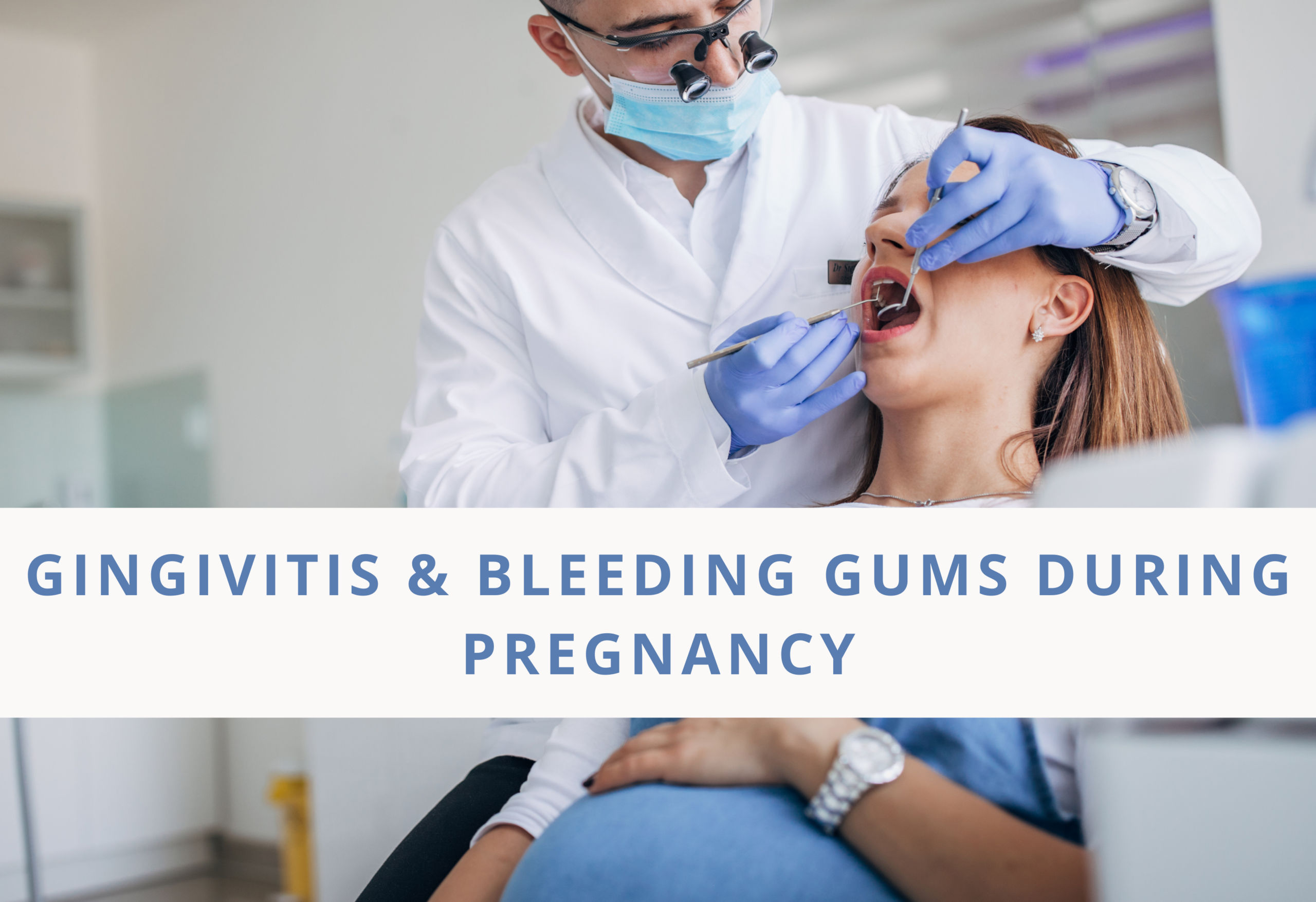Managing Bleeding Gums During Pregnancy: A Guide For Expectant Mothers
Pregnancy is a time of significant change, not just for your body as a whole but for your oral health as well. One common but often surprising change is the onset of bleeding gums, a condition closely linked to the hormonal shifts happening within your body. Understanding why this occurs and how to manage it can help ease discomfort and maintain your oral health during this special time.
Why Do Gums Bleed During Pregnancy?
The increase in estrogen during pregnancy boosts blood flow to your mouth and gums, leading to swelling of the gingival (gum) tissues, a condition known as gingivitis of pregnancy. This heightened blood flow, combined with the development of small, fragile blood vessels, can lead to bleeding during routine dental care like brushing or flossing, or even when eating certain types of food. Roughly one-third of pregnant individuals experience this phenomenon at some point during their pregnancy.
Additionally, the rise in progesterone can alter the pH of your saliva, fostering bacterial growth and reducing the antimicrobial activity of peripheral neutrophils, crucial for defending against periodontal diseases. While less common, certain pregnancy-related blood conditions can also contribute to bleeding gums.
Self-Care and Management
Despite the discomfort, there are several ways to manage bleeding gums effectively during pregnancy:
- Maintain Oral Hygiene: Continue regular brushing and flossing with a softer-bristled brush to minimize gum irritation. This also helps keep bacterial growth in check.
- Warm Saltwater Rinses: Gently rinsing your mouth with warm saltwater (one teaspoon of salt in one cup of water) can help soothe irritated gums.
- Routine Dental Care: Don’t skip your dental check-ups. Most dental procedures are safe during pregnancy and can help address any issues early on.
- Dietary Considerations: Eating a balanced diet and reducing sugary snacks can help maintain oral health and reduce the risk of exacerbating gum issues.
When To Call Your Midwife Or Dentist about bleeding gums during pregnancy
While bleeding gums can be a normal part of pregnancy, there are instances when it’s essential to seek professional advice:
- Persistent Bleeding: If your gums continue to bleed regularly despite gentle care, it’s worth getting checked for signs of severe gingivitis.
- Preexisting Conditions: If you had gingivitis before becoming pregnant, monitor any changes closely, as conditions can worsen during pregnancy.
- Systemic Concerns: Given the link between periodontal disease and increased risks of preterm birth, preeclampsia, and low birth weight, addressing severe dental issues is crucial.
Bleeding gums during pregnancy, while common, should not be overlooked. Simple self-care routines can significantly reduce discomfort and help maintain your oral health. However, ongoing issues or severe symptoms warrant professional evaluation. Remember, taking care of your oral health is an integral part of ensuring a healthy pregnancy journey for you and your baby.
FAQ about Bleeding gums during pregnancy
- Why are my gums bleeding during pregnancy? During pregnancy, increased levels of estrogen and progesterone boost blood flow to your gums and make them more sensitive, leading to swelling and sometimes bleeding, especially when you brush or floss. This condition, known as pregnancy gingivitis, affects about one-third of pregnant individuals.
- Is it normal to have bleeding gums while pregnant? Yes, it’s quite common. The hormonal changes that occur during pregnancy can lead to swollen gums that are more prone to bleeding. However, maintaining good oral hygiene and following a few simple care tips can help manage the condition effectively.
- Can bleeding gums affect my pregnancy? While bleeding gums themselves are not a direct threat to your pregnancy, untreated severe gingivitis can be a concern. Studies have shown a link between periodontal disease and higher risks of preterm birth, preeclampsia, and low birth weight. So, keeping your gums healthy is part of ensuring a healthy pregnancy.
- How can I prevent my gums from bleeding during pregnancy? You can minimize gum bleeding by maintaining a good oral hygiene routine, including brushing gently with a soft-bristled toothbrush and flossing daily. Warm saltwater rinses can also soothe irritated gums. Additionally, visiting your dentist for regular check-ups can help prevent problems before they start.
- Should I see a dentist about my bleeding gums if I’m pregnant? Yes, it’s a good idea to consult a dentist, especially if the bleeding is frequent or severe, or if you experience discomfort. Most dental treatments are safe during pregnancy and can help address any oral health issues early on. Plus, your dentist can provide tailored advice on caring for your gums during this time.
Additional Resources for Bleeding Gums with Pregnancy
- Bleeding gums in pregnancy from the UK National Health Service
- Bleeding Gums in Pregnancy from The Cleveland Clinic
- Pregnancy and Oral Health from the CDC
- Learn how to alleviate other common pregnancy discomforts





